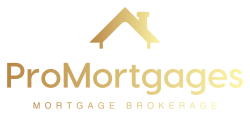A Lending Solutions / Prime Lending Solutions
Securing a mortgage in Canada is a significant step toward achieving homeownership. However, navigating the complex world of mortgage financing can be daunting, especially for first-time homebuyers. Understanding the fundamentals of Prime Lending Solutions, a primary avenue for mortgage financing, is crucial for making informed decisions and securing the best mortgage terms. In this comprehensive guide, we’ll explore everything you need to know about A lending and Prime Lending Solutions in Canada mortgages.

What is A Lending in Canada?
A lending refers to traditional mortgage financing offered by mainstream financial institutions such as banks, credit unions, and other established lenders. These lenders adhere to strict lending criteria and typically offer mortgages to borrowers with strong credit histories, stable employment, and sufficient income to support their loan payments.
For many borrowers, prime lending solutions is the go-to option when securing financing. Prime lenders offer competitive interest rates, making them an attractive choice for those who meet their criteria. However, for individuals who may not qualify for conventional mortgages, alternative financing options are available. Alternate lending provides solutions for those with less-than-perfect credit or other unique financial situations, allowing them to access the financing they need.
If you’re purchasing a home, you can explore residential mortgage solutions to help you navigate the home-buying process and secure the best terms for your mortgage. Alternatively, if you’re looking to build or renovate your property, construction financing offers specialized loans designed to help you fund your project, whether it’s residential or commercial.
In addition to these, if you’re considering refinancing, refinancing options can help you take advantage of lower interest rates or access home equity to consolidate debt or fund other financial goals.
For business owners or investors, securing a commercial mortgage may be necessary to finance properties such as office buildings, retail spaces, or multi-family units. And for self-employed individuals, self-employed financing solutions are specifically designed to address the unique challenges of non-traditional income sources.
Ultimately, whether you’re exploring prime lending or alternate lending, understanding the available options is key to making the best decision for your financial future. CIL Mortgages offers personalized support and expert advice to guide you through the mortgage process, no matter your needs.
Stay connected with us on social media for updates and more helpful mortgage tips:
Key Features of A Lending in Canada:
- Prime Interest Rates: A lenders offer mortgages at prime interest rates, which are the lowest rates available in the market. Borrowers with excellent credit and financial profiles are eligible for these competitive rates, resulting in lower monthly payments and overall borrowing costs.
- Low Down Payment Requirements: A lenders may require borrowers to provide a down payment of at least 5% of the property's purchase price for a mortgage. However, borrowers who can provide a down payment of 20% or more may qualify for a conventional mortgage without the need for mortgage insurance.
- Stringent Qualification Criteria: A lenders have strict qualification criteria and require borrowers to meet specific requirements related to credit history, income, employment, and debt-to-income ratio. Borrowers must demonstrate their ability to repay the loan and meet the lender's risk assessment criteria to qualify for A lending.
- Full Documentation: A lenders typically require borrowers to provide extensive documentation to verify their income, assets, and liabilities. This may include pay stubs, tax returns, bank statements, and other financial documents to support the mortgage application.
Benefits of A Lending in Canada:
Competitive Interest Rates
Flexible Mortgage Options
Stability and Reliability
Access to Additional Services
How to Qualify for A Lending in Canada:
- Strong Credit History: A lenders require borrowers to have a strong credit history with a high credit score. Typically, a credit score of 680 or higher is considered acceptable for A lending.
- Stable Employment: Borrowers must have stable employment and sufficient income to support their mortgage payments. Lenders may require proof of employment and income documentation, such as pay stubs, employment letters, or tax returns.
- Low Debt-to-Income Ratio: Borrowers must have a low debt-to-income ratio, indicating that they have sufficient income to cover their monthly debt obligations, including the mortgage payment.
- Down Payment: Borrowers must provide a down payment towards the purchase of the property. While the minimum down payment requirement is 5% of the property's purchase price, a larger down payment can improve the borrower's chances of qualifying for a mortgage and reduce the need for mortgage insurance.


 by Bhasha Infotech
by Bhasha Infotech